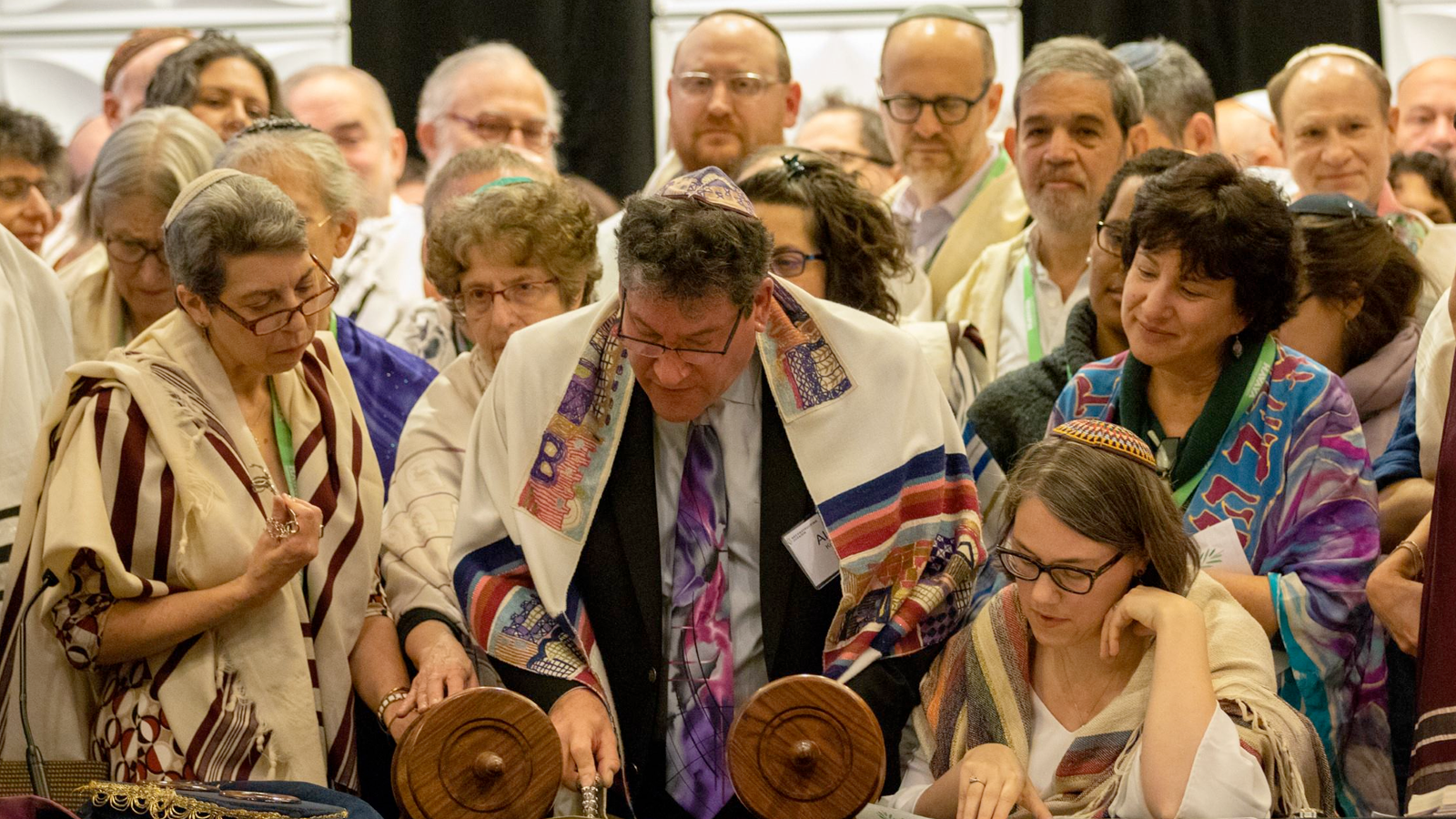Reconstructionist Judaism is a politically and religiously progressive Jewish movement that is the smallest and youngest of the so-called “big four” American Jewish denominations. It encompasses roughly 100 synagogues in the United States and a handful overseas and is the only one of the major movements that was established in the United States.
The movement emerged in the early 20th century from the thinking of Mordecai Kaplan, an Orthodox-ordained rabbi and professor at the Conservative movement’s Jewish Theological Seminary who proposed that Judaism is the evolving civilization of the Jewish people — evolving in that it changes over time, and civilization in the sense that it encompasses more than Jewish law and ritual, but also Jewish culture, philosophy, historical memory and collective destiny. Kaplan rejected the idea that Jewish rituals are binding divine commandments, positing instead that they are “folkways” — customs that were adopted by Jews over the centuries and influenced by the cultural context in which Jews lived.
Among Kaplan’s best-known statements is that Jewish tradition gets “a vote but not a veto” — that is, Jewish tradition should be consulted in determining how Jews live today, but its dictates are not absolute. In this respect, Reconstructionism is more in line with Reform Judaism, which rejects the obligatory nature of Jewish law, than it is with Conservative and Orthodox Judaism, which considers Jewish law, or halacha, to be binding on all Jews today. The movement is gender-egalitarian on ritual matters and accepting of intermarried and LGBTQ Jews.
The rejection of obligatory halacha has helped foster a spirit of innovation about which the movement has long taken pride, sometimes calling itself the “research and development arm of the Jewish community.” A number of now common practices among American Jews were pioneered by Reconstructionists, perhaps most famously the bat mitzvah celebration for girls. Kaplan is credited with holding the first American bat mitzvah when he presided over one for his oldest daughter, Judith, in 1922. Today, the ceremony is common across all Jewish denominations.
With your help, My Jewish Learning can provide endless opportunities for learning, connection and discovery.
The movement was also the first to accept patrilineal descent (1968), to ordain gay and lesbian rabbis (1984), and to permit rabbinic officiation at same‑sex commitment ceremonies (1996). In 2015, the movement became the first to permit intermarried rabbis when it changed its rabbinical school policy to allow the admission and ordination of those candidates partnered with a non-Jew. The policy shift prompted a number of rabbis and congregations to quit the movement.
In 2018, the movement’s central organization announced that it would henceforth be known as Reconstructing Judaism. The movement’s seminary, which is located in suburban Philadelphia, is the Reconstructionist Rabbinical College. In addition to the seminary and congregational association, the movement also includes a rabbinical group, the Reconstructionist Rabbinical Association, and a publishing house, Reconstructionist Press. The movement created and runs RitualWell.org, a popular website featuring a large catalog of poems, meditations, ceremonies and other resources for crafting meaningful Jewish rituals. It also runs a summer camp, Camp Havaya (originally called Camp JRF) in Pennsylvania. (Havaya is Hebrew for “experience.”)
siddur
Pronounced: SIDD-ur or seeDORE, Origin: Hebrew, prayerbook.
halacha
Pronounced: hah-lah-KHAH or huh-LUKH-uh, Origin: Hebrew, Jewish law.

